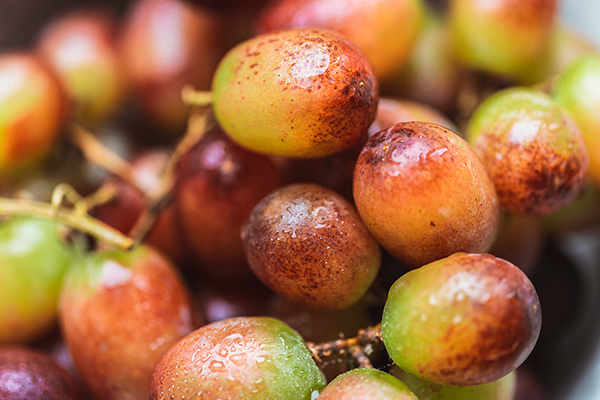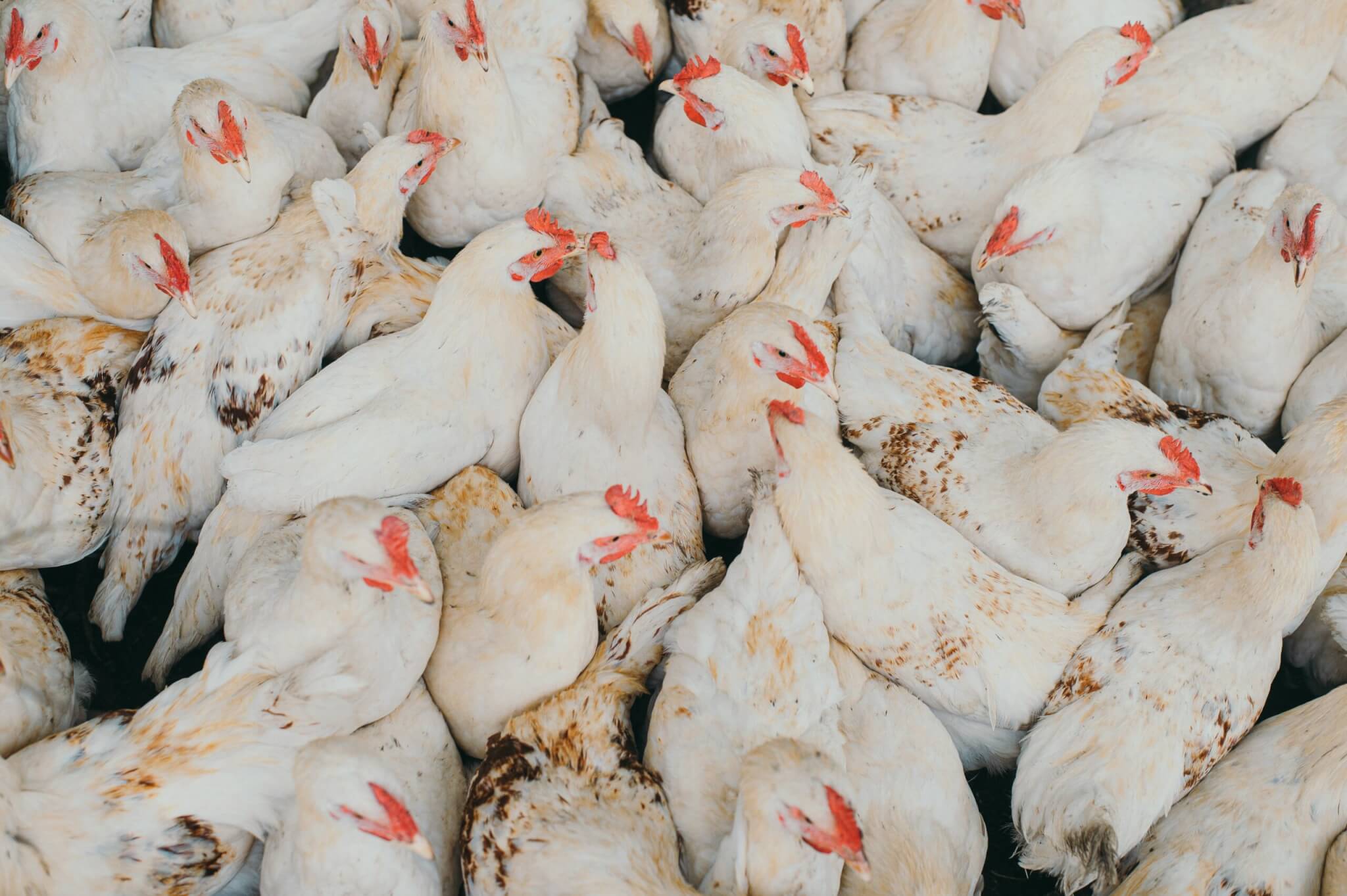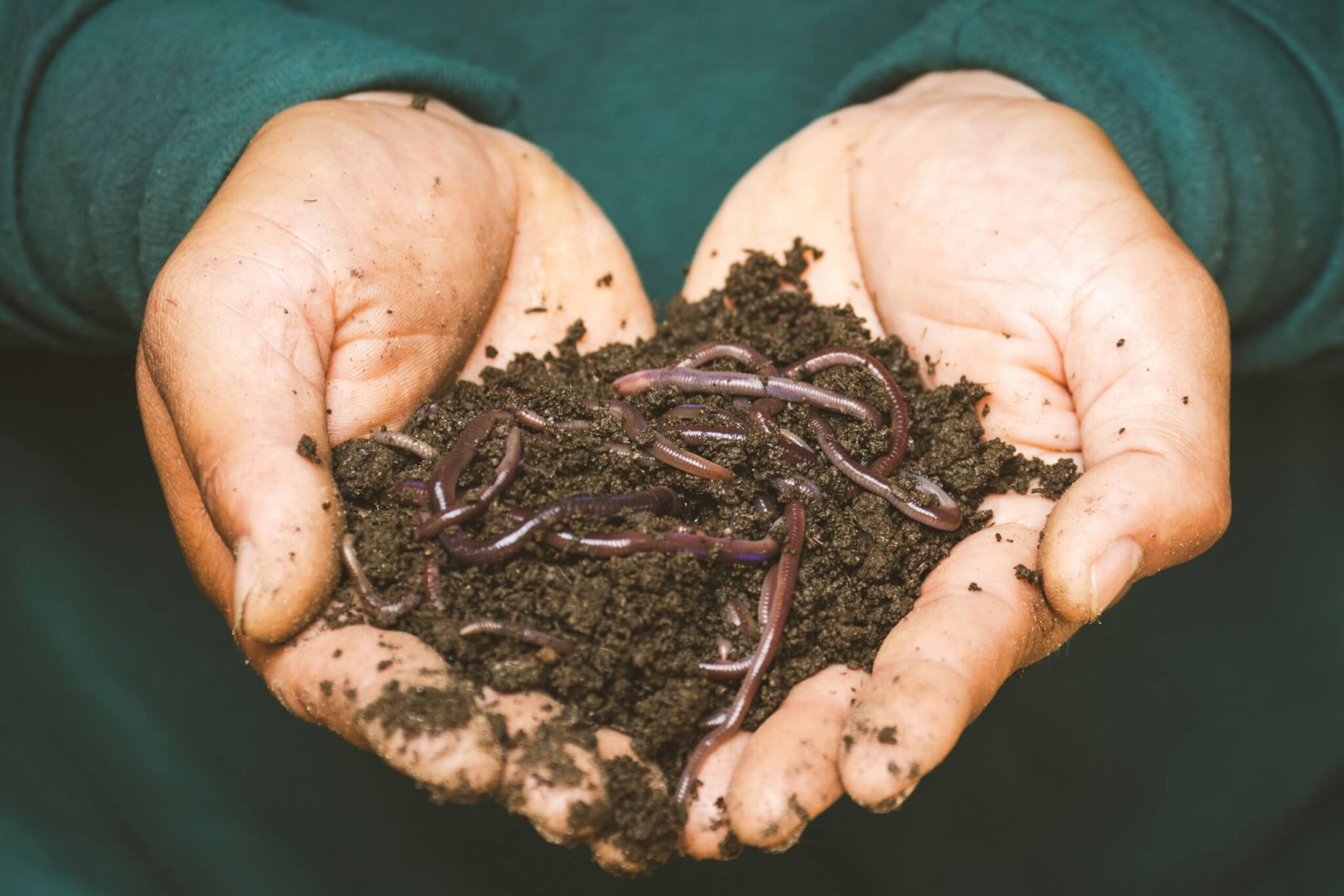The nation’s favourite fruits contain the highest level of pesticides residues according to the latest Dirty Dozen ranking.
Green, red and black grapes are three of the UK’s favourite five fruits, but come top of this year’s ‘Dirty Dozen’, a list of fruits and vegetables with the highest level of pesticide residues, compiled with official UK government testing figures.
The list, which ranks the fresh produce most likely to contain cocktails of pesticides, has grapes top of the list, closely followed by oranges, raisins and sultanas – all family favourites. Non organic fruit and veg is grown with herbicides and pesticides to control pests and disease, both of which are banned in organic food production.
Testing revealed that more than 80 per cent of each of these four items contained residues of more than one pesticide. In total, 122 different pesticides were found in the Dirty Dozen, with 25 chemicals found in just one kilogram sample of sultanas.
Many of these are classified by the UN as highly hazardous pesticides (HHP’s), and although found in small amounts in these foods, are classed as being most harmful to human health or the environment.

Of the 122 chemicals found on samples, many have health impacts such as links to cancer, birth defects, developmental disorders and respiratory system impairment, or adverse effects on sexual function and fertility.
Nick Mole, from Pesticide Action Network UK (PAN UK), said: “These figures highlight the wide array of chemicals that we are exposed to daily through our diets. While safety limits continue to be set for just one pesticide at a time, the evidence is growing that chemicals can combine to be more toxic, a phenomenon known as the cocktail effect.”
PAN UK is calling for the government to expand and strengthen its residue testing programme, and to fund research into the effects on human health of exposure to pesticide cocktails in food.
“Consumers presume that their food has been through rigorous testing and that if an item is available for sale in the UK then it must be safe,” Mole added “Unfortunately this is not necessarily the case. We actually have very limited understanding of the long-term impacts to human health of consuming small amounts of tens of different pesticides every day of our lives.”
It isn’t just humans that are impacted by the artificial pesticides found in this year’s Dirty Dozen. Many of these substances are listed in the University of Hertfordshire Pesticide Properties Database as groundwater contaminants, potentially impacting aquatic biodiversity and drinking water quality. One is a neonicotinoid – acetamiprid – that is highly toxic to birds, earthworms and may even threaten bee health.
The news comes as a campaign to ban urban pesticides that aimed to take toxic chemicals out of town and city green spaces was rejected by parliament. In response, professor of biology and author Dave Goulson said: “The DEFRA response fails to recognize that we are in an environmental crisis, the sixth mass extinction event, with extinction rates accelerating and global biodiversity collapsing. This ‘trust us, everything is fine’ approach will not wash any more. Complacency and inaction are not an option.
“Finally, DEFRA’s response barely acknowledges that this petition is focussed on garden and urban use of pesticides, not their use in farming. The government’s blather about promoting Integrated Pest Management (IPM) is not relevant here, for they are doing nothing to promote IPM in gardens.”
The alternative is an increase in agroecological and organic farming, where synthetic pesticides are banned. PAN UK is also asking for a package of support to help UK farmers reduce their pesticide use, thereby decreasing residues in food.

Of the 12 types of fruit and vegetables on last year’s Dirty Dozen, the government tested just three this time around. Strawberries, lemons and pre-packed salad, which topped the previous list, were not tested. Looking beyond fruit and vegetables, last year 94 per cent of oats tested positive for multiple residues but they were not tested again this year.
“The UK government only tests around 3,000 samples of food for pesticides each year,” said Mole. “They justify this by arguing that it’s unnecessary to test more because they run a risk-based system which focusses in on food items which are most likely to pose a threat. But actually they have failed to test three-quarters of last year’s produce of concern.”













I believe the article is right. But advise should be given . About washing and peeling . As I assume that most off the residues are on the skin and a orange has a strong skin . Apples should be peeled. Is any scientific research done on the inner fuit iff residues are found and in wat proportion to the outer skin ?????